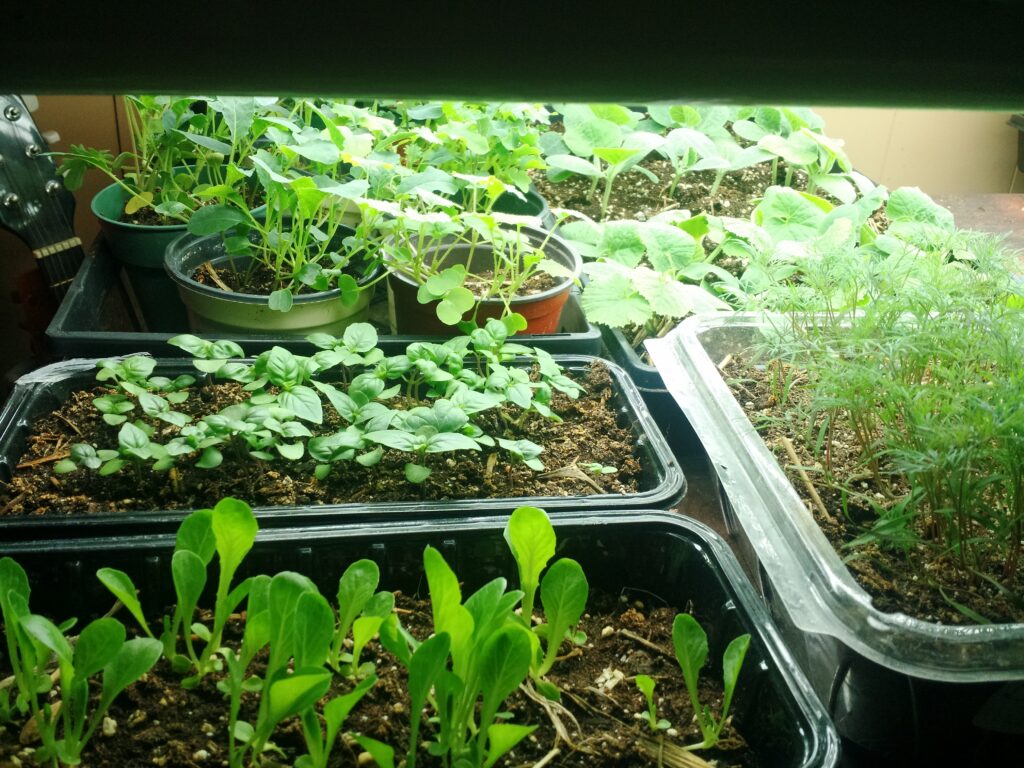Growing food provides a ‘fruitful distraction’ during the pandemic

April 27, 2020
By Nate Smelle
Over the weekend the Ford government announced that it had reversed its decision designating Ontario's community gardens as non-essential. Now, the tens of thousands of people throughout the province who rely on community gardens as a free source of healthy, locally-grown food will be able to fill their bellies while helping to fight food insecurity during the COVID-19 pandemic.
Expressing her delight with the government's decision the Trust's executive director Jane Kali said “we know that food sovereignty has never felt so important. Growing local, feeding ourselves and our community is nourishing for the body, mind, heart and soul. We are very happy with the decision.”
As part of her work with North Hastings Community Trust Jo-Anne Reynolds manages Bancroft's Harvest the North community gardens. Despite the province's previous designation of these spaces as non-essential, she said Harvest the North's team of community gardeners have continued to prepare for the upcoming growing season. In fact, due to a heightened awareness of the fragility of Ontario's food system brought into the limelight as a result of the pandemic, Reynolds said they have started growing even more seedlings than usual this year. If there is one thing she has learned from her experience of managing the gardens, she said it is how vital the gardens are in terms of improving public health and strengthening the local food system.
“These gardens are so deeply anchored within our community. They are essential to mental health, and they are essential to food security,” said Reynolds.
“There is nothing more satisfying than digging your hands into warm, rich soil. It is good for the soul, it's good for the psyche, and it's good for our mental health. In a time where people are forced into isolation, to be able to get out into the gardens gives folks purpose. The whole aspect of hands to earth is so rewarding and I think that people need that light at the end of the tunnel, some hope. These gardens and growing food can contribute to that.”
According to Reynolds, she is being contacted on a daily basis by people looking to get involved. She sees this rising level of interest in community gardening as an indicator of how much people value the opportunity to grow their own food. Reynolds said it is also a testament to how beneficial the experience can be in terms of improving people's quality of life and mental health. Highlighting how she has noticed that community gardens always “bring out the best in people,” Reynolds said “It's really cool to see somebody who is rough and tough and usually has to put on a strong face change when it comes to working with the seedlings. There is this gentleness and calmness, and you can physically see it envelop a person. The harshness is wiped away from those moments of tending the gardens. By being so present with it people become focused. It is especially valuable in this time of pandemonium and fear, because all that doesn't matter for a moment while you are tending your garden. Nothing else exists.”
Reynolds continued “It is a distraction from the pandemic, and it is a fruitful distraction. There is a purpose and there is meaning behind it. Like cultivating relationships within the community, we are cultivating produce within the gardens. And it just continues to solidify our communities together.”
When COVID-19 first put its foot down in North Hastings, Reynolds recalled an “eerie” feeling coming over her as she walked among the empty shelves at one of the local grocery stores, wondering whether she would be able to pick up a single item on her list. As unsettling as this experience was, she said it really drove home the importance of establishing a more resilient local food system. Fortunately, Reynolds said small rural communities such as those found in North Hastings have an advantage over larger urban centres when it comes to growing food. She said evidence of this advantage has become apparent in the number of private landowners stepping up to grow food for others this year.
“The way we conduct business has changed,” said Reynolds.
“The pandemic has absolutely changed the course of how we are moving forward, but the gardens will not change. No matter what, there will always be food growing and there will always be gardens, because this is about love, food, community and the future of our food source.”
Last week Reynolds sent a letter to Bancroft council advocating on behalf of the gardens. By working together, she said the town and the Trust can develop a strategy that allows the gardens to continue producing food for the community while respecting measures in place to protect public health and safety. Acknowledging council's support in the past, Reynolds said she is “hopeful and optimistic” that they will be able to find a way to make it work. She said the best thing people can do right now to support Harvest the North is to contact their elected officials and urge them to come up with a plan to continue growing food during the pandemic.
“The more we can become sustainable the better,” Reynolds said.
“The more we don't have to rely on urban centres for our food, the better off we will all be. One thing that I continue to hear is how Bancroft is one of Ontario's most talented towns. We have outside the box thinkers here, so let's start thinking outside the box with hope and optimism moving forward. Right now what we need are life-savers not bricks.”
|
